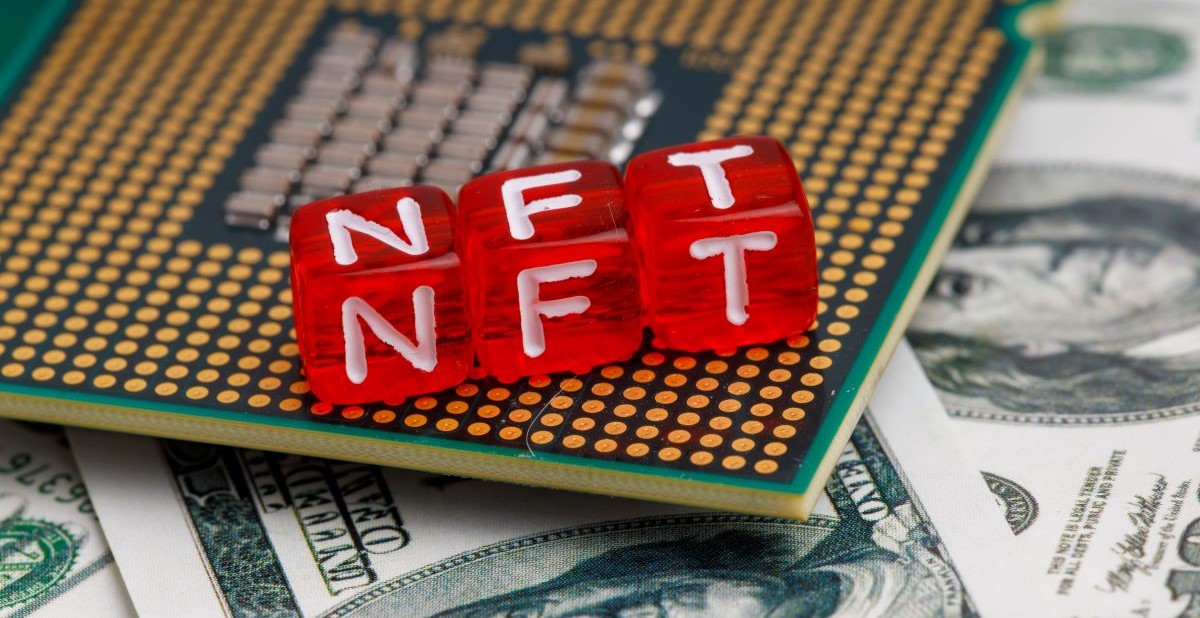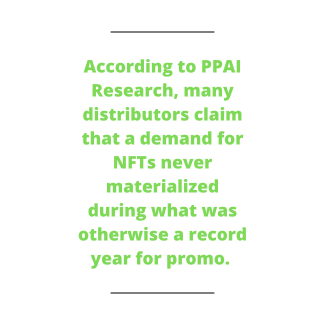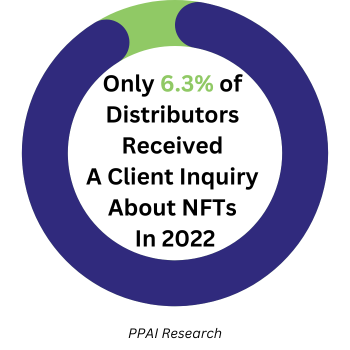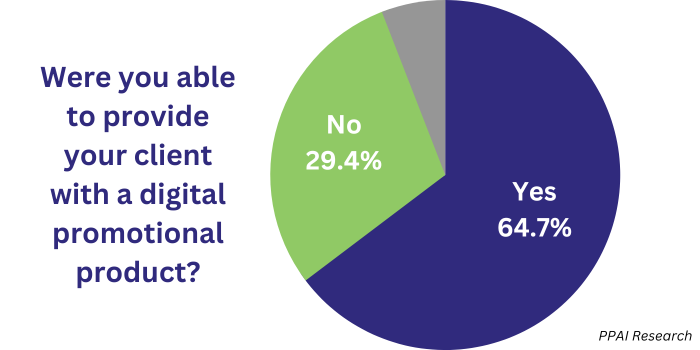Not Frenzy Time: NFTs Fail To Take Root In Promo As UK Issues Ban

As recently as 18 months ago, the idea that the near future of promotional products would at least partly be in NFTs (non-fungible tokens) seemed a reasonable conversation. At the time, they represented a phenomenon that consumers, companies and designers were racing to utilize.
Major brands dipped their toes into the waters, such as the NFL, which offered souvenir NFTs to Super Bowl goers last February. The next month, PPAI Media interviewed industry pros about the potential promise of NFTs as what some saw as a limitless promotional product.

In the most basic sense, NFTs are units of data that can be sold and traded. Digital art, for example, is a popular form of NFT because it represents something unique that no one else can possess. There is still a market for the digital tokens, but for many, the medium turned from hype to novelty, and according to PPAI Research, many distributors claim that a demand for NFTs never materialized during what was otherwise a record year for promo.
Now, the United Kingdom’s equivalent of the Federal Trade Commission has issued a ban on free NFTs as a promotional tool for digital asset investing, another blow to NFTs' theoretical utility as promotional products.
UK Ban On NFTs As Promo
Last week, the United Kingdom’s Financial Conduct Authority (FCA) took new actions to dissuade uninformed investments in cryptocurrency.
- The FCA has banned the practice of giving away free NFTs and cryptocurrencies via airdrops to persuade users to invest in digital assets.
- The FCA has classified crypto as a “restricted mass market investment” and free incentives, like NFTs, cannot be used to persuade consumers to invest in “unregulated” and “high risk” digital assets. This will also apply to “refer-a-friend” promotions involving crypto.
“It is up to people to decide whether they buy crypto,” says Sheldon Mills, executive director of consumers and competition at the FCA. “But research shows many regret making a hasty decision. Our rules give people the time and the right risk warnings to make an informed choice.”
- These rules will take effect in the UK starting October 8.
Promo and NFTs
Carey Trevill, CEO of the British Promotional Merchandise Association, says that while NFTs were on her radar in 2021 and 2022, “I doubt this will have much consequence,” as it pertains to the members of her association.
“Certainly, NFTs came up in our debate we hosted in the House of Commons earlier this year as digital promotions of NFTs have picked up, but, in advertising and marketing terms, if our members were approached they would probably say this is not their field,” Trevill says.
Likewise, a segment of distributors taking the PPAI Sales Volume Estimate survey for 2022 unveiled the extent to which NFTs failed to find traction in the industry last year. Among responding distributors of all sizes, very few had a client show interest in digital promotional products last year.
Only 6.3% of responding distributors say a client inquired about digital promotional products in 2022.

It is worth noting that this overall lack of client interest in NFTs came during what was otherwise a record-breaking year for the promotional products industry, which topped $25 billion in sales.
- Of the distributors whose clients asked for a digital promotional product, 64.7% were able to provide the client with a digital product.
- In 29.4% of the cases where distributors were asked about sourcing a digital promo item, the distributor was unable to provide the solution. Another 5.9% of the time, the client inquired but didn't order.

In April, PPAI Media wrote about the lessons to be learned from the software company Salesforce’s doomed exploration into NFTs.
It is important that promo, an industry well over 100 years old, remains committed to digital innovation, but these numbers suggest that the promo world largely avoided the temptation of investing money and time in a phenomenon that clients never showed strong interest in.

